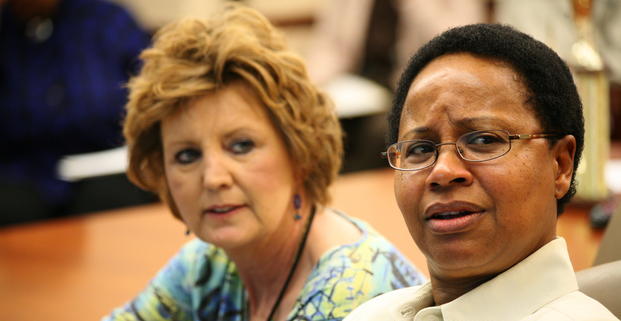A new study says that as many as half of military spouses who think they have secondary PTSD don’t.
The study, conducted out of a George Mason University in Northern Virginia, found that most spouses who think they have secondary PTSD are instead suffering from stress from traumatic events in their own lives or from the stress of taking care of a their servicemember.
The label “secondary PTSD” has likely become misused, Keith Renshaw, the study’s author, said because spouses use it as a catch-all term for any intense stress. But misidentifying the problem can lead to incorrect mental health treatment -- and that can have even greater consequences, he said.
Before writing this story I would have, if asked, claimed to have some secondary PTSD. I’m certainly not in the business of trying to mislabel anything -- but, like many spouses, I just didn’t understand the specifics of the problem.
My problem is this: I regularly relive, have dreams about and get caught up in unpleasant daydreams over the huge number of military memorials I attended over my husband’s last deployment. Because it has to do with my husband’s military service, in a way, I have called it “secondary PTSD.” But according to Renshaw’s explanation, I was wrong.
Secondary post-traumatic stress disorder has become a common catch-all label in the military community for the intense stress many spouses feel while living with a veteran suffering from PTSD. Unlike caretaker stress or stress from traumatic events in their own lives, secondary PTSD has sudden, specific characteristics including vivid dreams about the servicemember's traumatic event or avoiding reminders of that event, Renshaw said.
As the story says, this study has MilSpouse and family advocates worried that even fewer spouses will seek or get mental health help than already do. Rather than being overdiagnosed, Brannan Vines, founder of FamilyofaVet.com, believes the problem is grossly under diagnosed.
Vines told me that she has been working tirelessly since 2007 to teach spouses to recognize that they are stressed, that secondary PTSD is real and that they need mental health help. In her view, saying that the disease is overdiagnosed is a huge step backwards.
"In my opinion, through my work, secondary PTSD is not overly diagnosed, it's underdiagnosed," she said. "My concern with this study is that they are about to put out that we don't need to be monitoring caregivers for PTSD. And caregivers that are already having trouble getting people to take them seriously are going to be told 'well this study says you just have caregiver stress, you just need to relax.' "
Renshaw, of course, said that’s exactly what he does not want to have happen. He said his concern is not in shooting down the ability of spouses to get mental health help -- but in making sure the help they get is appropriate to the disease they have. Self diagnosing or using buzz words to point caretakers towards a secondary PTSD label doesn’t do anyone any good.
So spouses -- what do you think? Is secondary PTSD the major unrecognized problem Vines finds it to be or is it, like Renshaw’s study says, overused and misunderstood?









